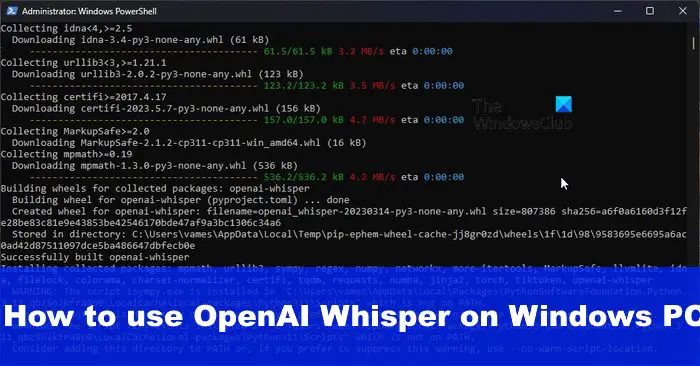I realized I have more monitors than ears and thought it would be nice to transcribe the wav files that DSD-FME saves instead of having to listen to them in real time. Here is a short script to do that. It watches for file handles to close and then runs the audio through openai's whisper library.
To use it:
- Make sure dsd-fme is writing per-call WAV files.
- Run `pip install -r requirements.txt`
- Run `python dsd-fme-transcribe.py /path/to/WAV/files`
Once it's started you should see text in the terminal like:
The script will work for any directory that is getting audio files dropped in it, but DSD-FME is the only thing I've tested it with. Cheers
To use it:
- Make sure dsd-fme is writing per-call WAV files.
- Run `pip install -r requirements.txt`
- Run `python dsd-fme-transcribe.py /path/to/WAV/files`
Once it's started you should see text in the terminal like:
TG Bus Dispatch RID 8703: 237 to central.
TG Bus Dispatch RID 8761: 2-3-7 standby just a moment. 2-3-2 go ahead.
TG Bus Dispatch RID 8784: I just wanted to update you that I'm route complete. Thank you.
TG Bus Dispatch RID 8761: Okay, 10-4. Thank you. Go ahead. Two, three, seven.
TG Bus Dispatch RID 8761: 274 standby just a moment. I got one more route calling in here. 237, I'm ready for you. Go ahead 237.
TG Bus Dispatch RID 8703: So it is closed and I have three stops down there. What do I do?
The script will work for any directory that is getting audio files dropped in it, but DSD-FME is the only thing I've tested it with. Cheers



